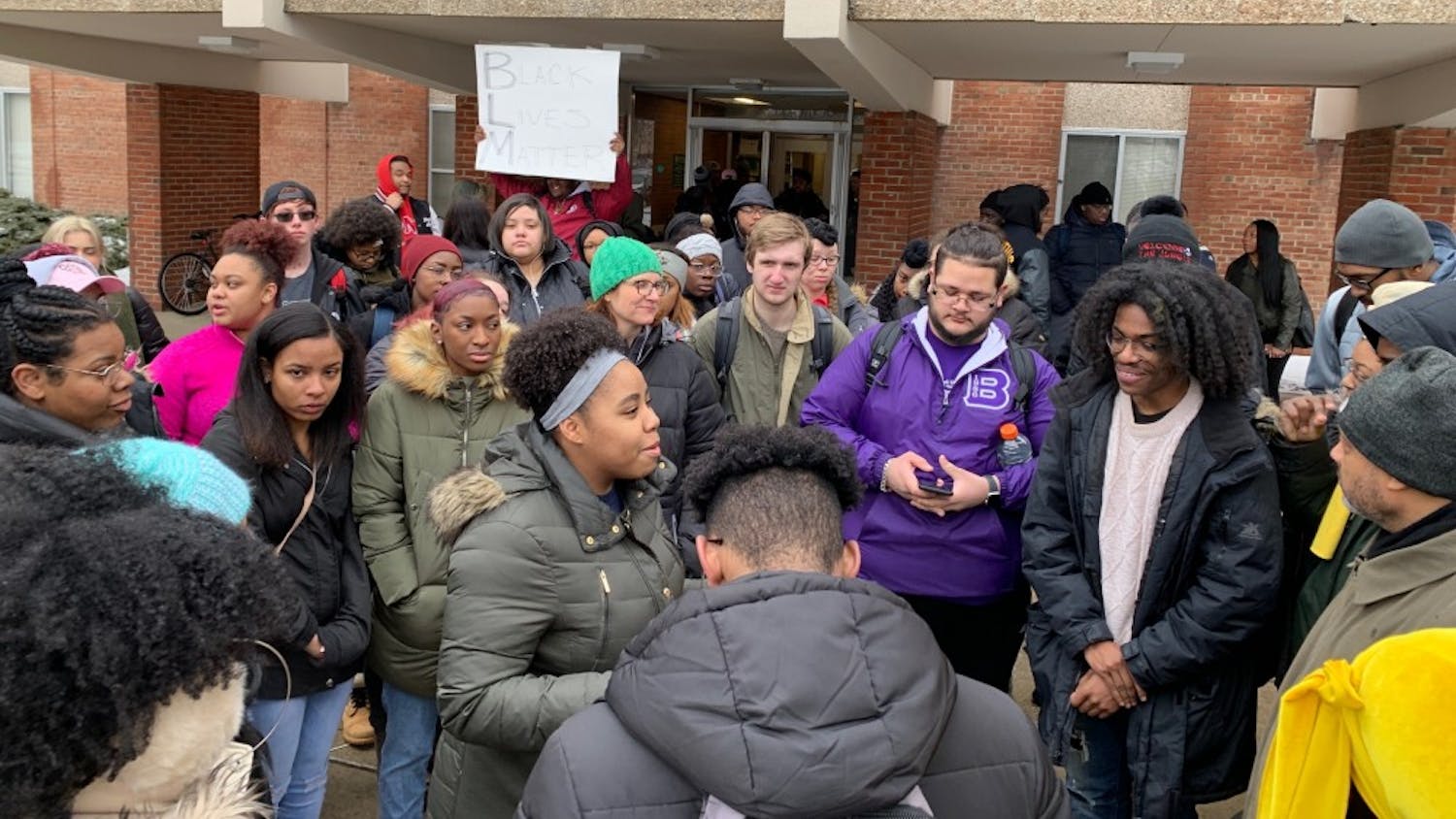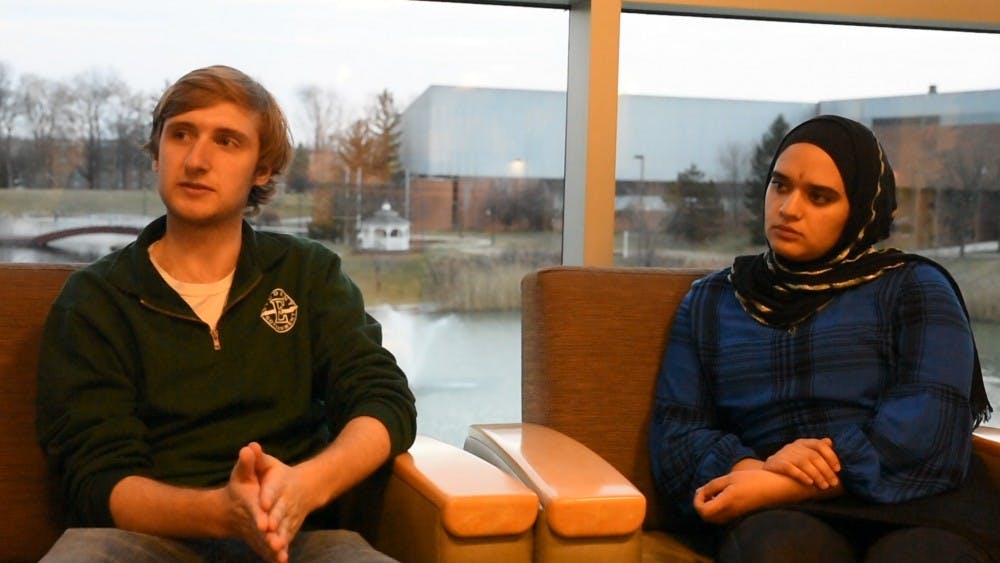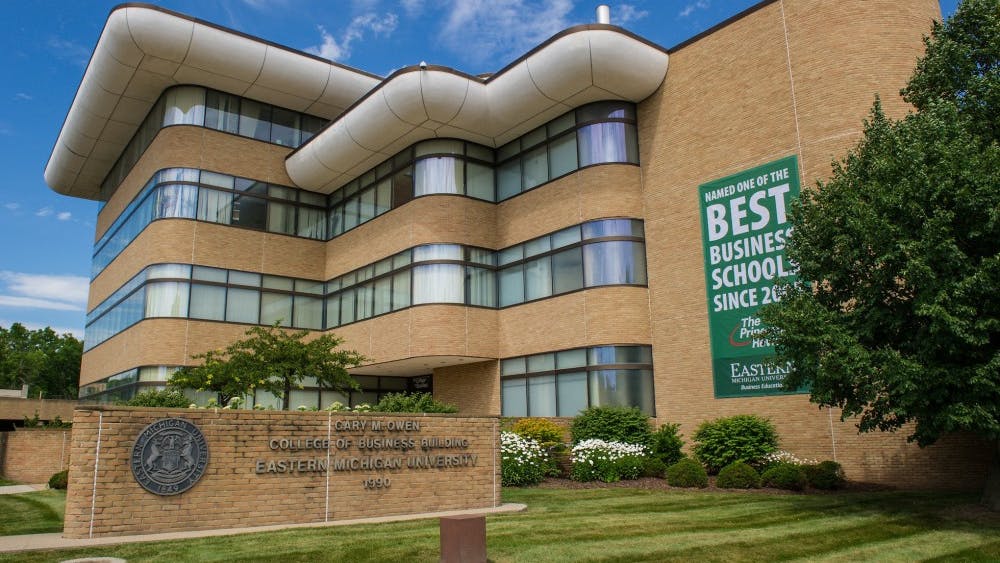During the last student affairs committee meeting of the 2018-2019 academic year, regents received presentations and concerns from Student Government, Housing and Residence Life and EMU's Children Institute, as well as campus leader Aaron Kempa. The presentations took place Tuesday, April 23, in Welch Hall with an audience of 40 to 50 people listening to the updates.
Kempa, speaking on behalf of Eastern's Student Leader Group, brought up three main concerns in his presentation to the regents: the lack of disability resources on campus, the persistent problems with the graduate school application, and the lack of a mid-fall break.
He reported that, while LAZ Parking was working towards being more accessible, there is a larger area of concern for the Disability Resource Center-- its understaffing. With a larger emphasis on inclusive understanding in the university, training sessions for the faculty are in high demand, and the lack of staff to run these sessions lead to problems for disabled students. With only an associate director in a director role, one case manager, one CATE lab coordinator and two grad assistants manning the resource center, Kempa urged the board to examine the staffing need.
The graduate school application also raised major concerns with the regents, as Kempa reported serious issues with the process. Students do not know their admission status until too late, he noted, and they cannot contact the right people to handle the issues. Faculty have also encountered issues, and there is a call for a centralized application process and easier tracking of admission status. Regent Dennis Beagen agreed that this issue has "gone on long enough," and that the longer the process takes, the more likely it is that the university loses otherwise enrolling students.
Finally, Kempa rounded out his presentation with the suggestion of a mid-fall break to mirror the winter semester's mid-semester break. He cited support of the idea by the provost, CAPS and the calendar committee, especially since CAPS reported increased stress and therapy appointments midway through the fall semester. This idea was also supported by Student Government, as represented by former president, Candice Crutcher, and incoming president, Ethan Smith. Their presentation followed Kempa's and outlined further student concerns.
At the top of their list was LAZ Parking with Crutcher and Smith discussing the mixed reviews and growing pains faced by the campus during the first contract year. Student Government has resolved to continue working with LAZ to improve the experience for students, especially after several students were ticketed during winter break due to misunderstandings about parking permit timelines. (Student Government had LAZ waive these tickets.)
Another concern was focused on the Free Speech Walls, as there had been four separate occasions of distasteful opinions. There is to be a new policy regarding the use of the walls in place for the next school year, with more regulated "renting" of the walls by various student organizations.
The last major concerns presented by Crutcher and Smith were access to public transportation to help with student food security by working with Bus Line Five to run on Sundays and to run to Walmart and Meijer for no additional cost, and the undergraduate requirement of 124 credits to graduate. Crutcher and Smith pointed out that the federal requirement is 120 credits, with students struggling to reach 124 credits in four years when taking the recommended 15 credit hour load. They recommended program course maps be drawn up and provided to freshmen so they are better informed.
Housing and Residence Life, as well as EMU's Children Institute, provided updates of their programs to the regents. There were no requests or policy changes made by the groups; rather, their leaders (Jeanette Zalba for Housing, Chris Finch and Beck Hale for the Children's Institute) highlighted their departments' progress and future plans.










